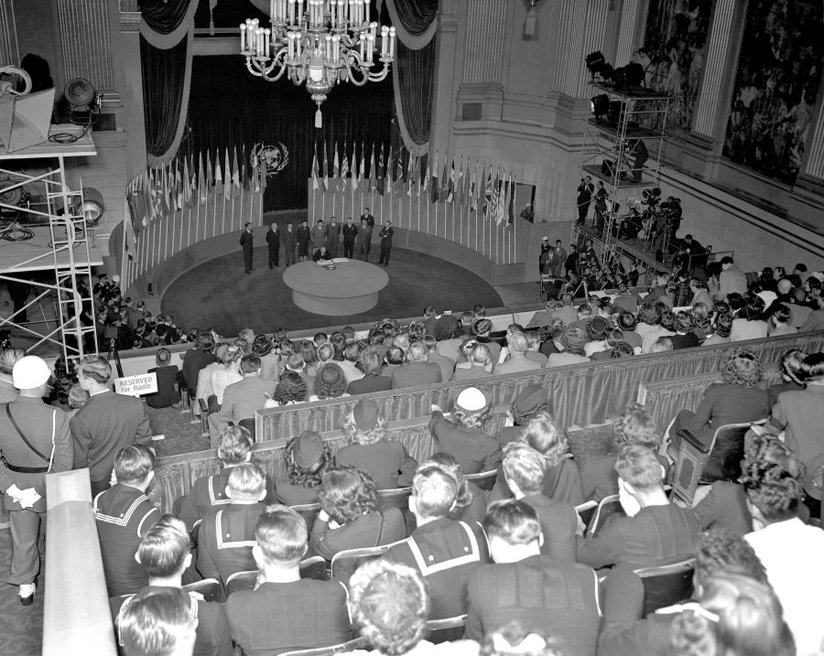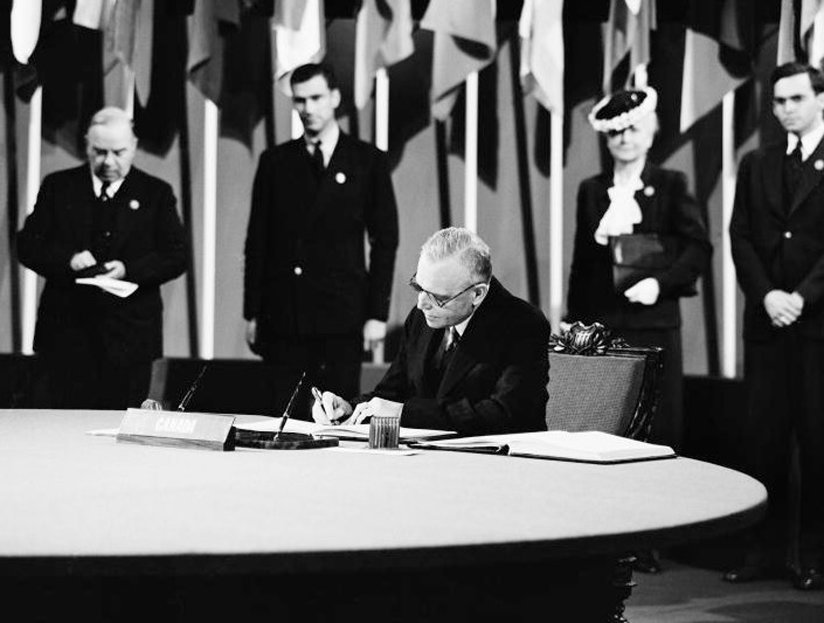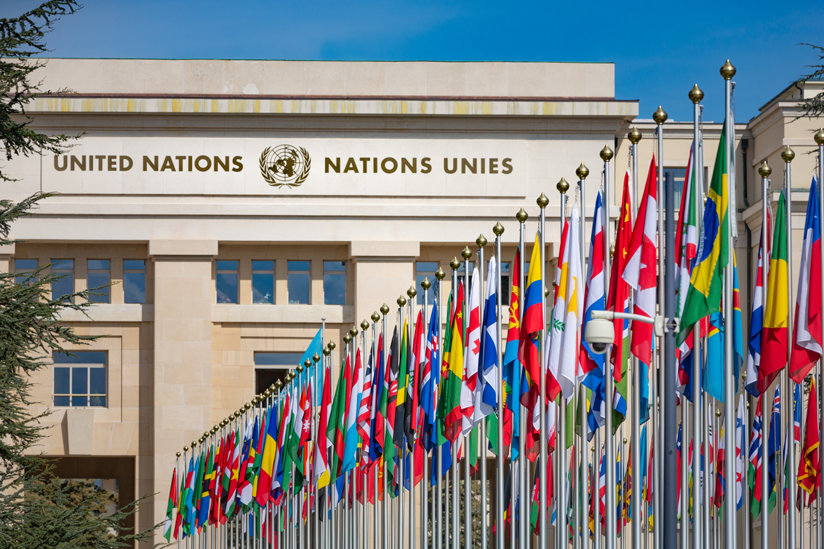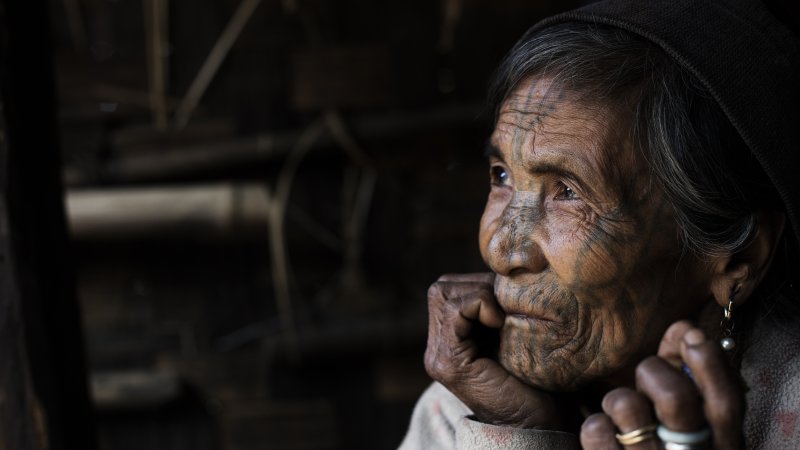
-
HOME
-
WHAT IS STANDOur Mission Our Values Our Help Contact
-
WHAT WE FIGHT FORReligious Freedom Religious Literacy Equality & Human Rights Inclusion & Respect Free Speech Responsible Journalism Corporate Accountability
-
RESOURCESExpert Studies Landmark Decisions White Papers FAQs David Miscavige Religious Freedom Resource Center Freedom of Religion & Human Rights Topic Index Priest-Penitent Privilege Islamophobia
-
HATE MONITORBiased Media Propagandists Hatemongers False Experts Hate Monitor Blog
-
NEWSROOMNews Media Watch Videos Blog
-
TAKE ACTIONCombat Hate & Discrimination Champion Freedom of Religion Demand Accountability
Marking the Birth of the United Nations—The World’s Advocate for Peace and Human Rights
“It is no exaggeration to say that the work we are starting on here at this meeting may be the world’s last chance.”
— Anthony Eden, United Nations Conference, San Francisco, 1945
A devastating World War, unparalleled in its destruction and loss of life. At its end, a U.S. president determined that such misery would never happen again and pushed for a union of nations that would work for peace and human rights.

But the League of Nations—forged 100 years ago in the crucible of what was at the time called The Great War—failed. The idea that sovereign states should pool their resources and manpower for the good of all was perhaps too novel. The concept, too, that a nation could be called to account for crimes against its own citizens and humanity was simply unheard of. The prevailing wisdom was that it was nobody’s business what a nation did within its own borders. So in the years leading up to World War II, nations allied with one another, traded with one another and signed treaties with one another—but at the end of the day, it was every nation for itself.
The Second World War changed all that. The cold-blooded murder of 12 million innocents—6 million Jews and 6 million others also deemed “inferior”—spawned a new word and a new crime, “genocide,” while the erasure of two cities in a matter of seconds—accompanied by a staggering loss of life—brought about the real fear that all human beings, regardless of citizenship, religion or wealth, could similarly be snuffed out at the push of a button.
Those same united nations were winning the war against racism and hate, but now had to win peace.
The 26 nations united in their commitment to defeat Hitler and the Axis powers called themselves “the united nations”—in other words, a group of nations united in a common cause. They signed a Declaration on New Years Day of 1942 binding them to the proposition that “complete victory over their enemies is essential to defend life, liberty, independence and religious freedom, and to preserve human rights and justice in their own lands as well as in other lands.”

By 1945, with Hitler defeated and Japan soon to follow, those same united nations were winning the war against racism and hate, but now had to win peace. Accordingly, a conference with delegates from 50 nations convened in San Francisco in June 1945 with the mission of preventing any future global conflagration by forging the nations of Earth into a peacekeeping force. President Truman, addressing the conference from the White House, highlighted the urgency of a successful accord: “At no time in history has there been a more important conference or a more necessary meeting than this one in San Francisco. You members of this conference are to be the architects of a better world. In your hands rests our future. If we do not want to die together in war we must learn to live together in peace.”
The delegates—not one of them unaffected by the devastating war, and united by the universal imperative to avoid another one—hammered out a charter and signed it at the conclusion of the conference. The “united nations” had become the United Nations, and October 24, the date when the new Charter of the United Nations came into force, has been marked ever since as United Nations Day, the day when the UN officially came into being.
For 77 years the UN has brought nations to the table rather than the battlefield.
The delegates signing the Charter—which, in a telling nod to the Preamble to the U.S. Constitution, begins with the words, “WE THE PEOPLES OF THE UNITED NATIONS DETERMINED TO SAVE succeeding generations from the scourge of war”—pledged their respective nations, “To maintain international peace and security… To develop friendly relations among nations based on respect for the principle of equal rights and self-determination of peoples… To achieve international co-operation in solving international problems of an economic, social, cultural or humanitarian character, and in promoting and encouraging respect for human rights and for fundamental freedoms for all without distinction as to race, sex, language or religion.”

For 77 years the UN has brought nations to the table rather than the battlefield and has served as the world’s conscience regarding such man-made ills as human trafficking, armed conflict and abuses of religious freedom and human rights. It has been a buffer between man’s baser instincts and his aspirations for a thriving and happy world.
What will the next 77 years bring? The answer lies with us, our consciences and our willingness to support the dreams laid down by a union of nations originally forged in war, but now bound together by a determination for peace. It was attempted once before—a century ago—and failed. It cannot fail again.
Now, perhaps even more than at its birth, the United Nations truly “may be the world’s last chance.”









